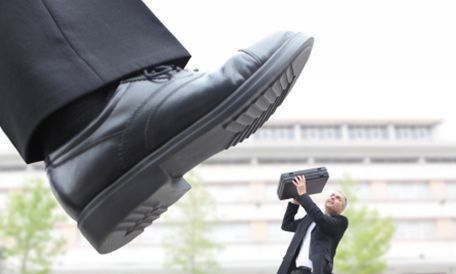2007年8月17日 英国最低工资减少工资差别
|
牛津大学(Oxford University)的一份报告显示,引入最低工资已导致薪资级别受到挤压,这“在消除工资差别,同时在影响对高技能的奖赏和激励。” The introduction of the minimum wage has led to pay levels being compressed, “destroying differentials and removing rewards and incentives for improving skills”, according to a report by Oxford University. The study, commissioned by the British Retail Consortium, found that 96 per cent of workers in the hospitality industry and 75 per cent of retail and wholesale workers earned the minimum wage, which is due to rise from £5.35 to £5.52 an hour in October. 自1999年实行最低工资标准以来,英国最低工资已提高46%,为逾100万员工提供了经济安全保障。欧盟(EU)统计机构欧盟统计局(Eurostat)的一份报告显示,在20个欧盟成员国中,英国最低工资水平排名第三,几乎是美国联邦标准的两倍。 Britain’s minimum wage, which has risen by 46 per cent since it was introduced in 1999, provides a financial safety net for more than 1m workers. It is the third highest out of 20 European Union nations and almost twice the US federal level according to a report from Eurostat, the EU’s statistical arm. The BRC says the way rates are set by the Low Pay Commission should take into the account the fact that the minimum wage has become the norm rather than a basic pay floor for hundreds of thousands of workers. Inflation-busting rises have begun to undermine the ability of employers to create new jobs, says Kevin Hawkins, BRC director-general. The Low Pay Commission instead of “trying to act as a referee between conflicting bids from employers and unions” should be guided by movements in median wages and productivity in individual sectors, says BRC. It warns: “Many employers, particularly those who operate in fiercely competitive and generally deflationary markets such as retailing, have seen their pay structures compressed. As a result, those who invest in training their staff and supporting further education and who want to be able to recognise and reward new and enhanced skills are un-able to do so.” A study at the end of 2005 by IDS, the pay and benefits specialists, reported that supermarkets had reduced the number of pay grades and in one case had “introduced a single sub-supervisor grade” following the introduction of the minimum wage. The BRC said: “If the minimum wage continues to grow at its recent average rate, employment will fall and employers will find themselves unable to reward skills, preserve wage differentials and provide valued non-wage benefits. These effects are already being felt in several sectors, including retail.” Frances O’Grady, TUC general secretary, however, said: “The minimum wage has worked because the rate has been determined by the Low Pay Commission, which brings employer and trade union representatives to-gether to discuss what will work best for the UK economy. It would be foolish to replace this successful partnership process with a mere mechanical index. “The BRC has consistently predicted that every increase in the minimum wage will be a disaster for the retail sector. The truth is that employment in retailing has grown to record levels.” |








